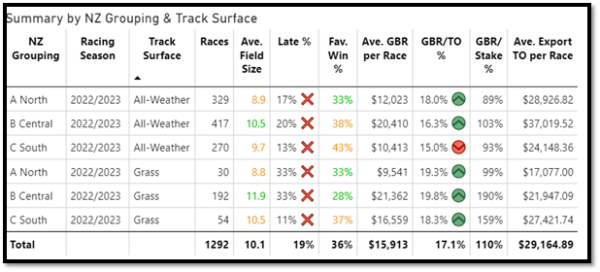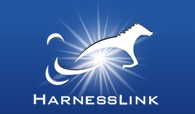The Harness Racing New Zealand mission is “To Champion the sport, celebrate the participants and have the horse at the heart of everything we do”.

At this time of the year each region is holding events that recognise and celebrate achievement and participation in our sport through the respective awards events. Congratulations to all that are recognized by their peers and to the owners and connections of the horses we acknowledge at these awards. Recipients of awards at each event will be published on the HRNZ website.
As a sport, we continue to adjust to the reduction in distribution from the TAB, these are challenging times for us all. At HRNZ approximately $500,000 has been shaved off operational costs by deferring projects, questioning every dollar spent and not filling vacancies, stakes distribution to clubs was reduced by 10% from 1 February and just over $2 million will come from reserves. The HRNZ Board and executive are regularly monitoring the cashflow situation and are waiting for further updates from the TAB as to what the future funding may look like.
The new criteria for junior drivers came into effect on 1 January and it is pleasing to see the opportunity that many owners and trainers are giving junior drivers, particularly where a concession junior driver only attracts half points for a win if the horse is 4 years old and older and has won a race. I acknowledge the work of the junior drivers, the regional licencing committees and the National Trainers and Drivers Association for their input into strengthening a pathway for junior drivers.
Following on from last year’s conference, all clubs and kindred bodies are being consulted on proposed changes to the governance and voting structure of HRNZ. If you are on a club committee or kindred body, please ensure your committee discusses this.
I acknowledge the work that is going on in the North Island to ‘think outside the square’ and to open up discussion on what might be done to grow and strengthen our sport in the North Island and in turn other areas of the country. I am sure that with the collective wisdom of respondents and forum participants the outcome will be of great value to the HRNZ Board when considering the future of our sport with a focus on sustainability and growth.
A challenge that we face is the diminishing number of horses available to race. Early indications are that year one of the breeders’ incentive scheme has potentially stopped a further reduction in the number of mares served, but the number hasn’t necessarily increased. What would really help the industry is getting horses to the races more often. It is not sustainable nor profitable to continue to run race meetings around the country with 10 races and small fields. In areas where this is happening, races may need to be reduced to build up field sizes in those races that remain. Our statistics show that over the last two years, the South Island horses on average have 10.1 starts from 1 August to 31 July. In the North Island the average number of starts per horse over the same period was 7.95.
The optimum field that the TAB statisticians say gives the best return is an average field size of 10 to 12 horses. The reality is that the number of races we hold annually will be determined by the number of horses available to race. This opens up another discussion on what can be done to best utilise the number of horses bred to maximise the racing numbers.
The HRNZ Board has asked our GM Racing, Catherine McDonald, through consultation with the Trainers and Drivers Association and other stakeholders, to investigate alternatives to the status quo. Should there be a minimum race stake? Do adjustments need to be made to the race winner’s matrix? Are qualifying times necessary? Is there a class of horse that we aren’t getting to the races that could make up another race field?
As we are in the process of establishing three regional programming committees who will be charged with planning out tentative programmes up to three months in advance, it is imperative that trainers keep their records up to date with HRNZ as to what horses they have in work. The programming committees rely on horse numbers and rating types to help them with their planning.
The HRNZ Board have now had presentations from all the clubs who had venues identified for consideration in the Canterbury Sapere report. The Board will be meeting on 22 March to consider the criteria to be applied when reviewing any venue and to further discuss their venue strategy. Before any further decisions are made, HRNZ will work with the other racing codes to consider their needs alongside our code’s needs.
The Board also approved Blair Orange to represent New Zealand in the upcoming World Driving Championships in August of this year. Blair who has been our leading driver since 2018 will no doubt represent New Zealand well. He will be driving in Germany, the Netherlands and Belgium.
Below is a summary of racing performance season to date:

The HRNZ Board meets again in person on 27 April for its scheduled Board meeting.

 USA
USA Canada
Canada Australia
Australia New Zealand
New Zealand Europe
Europe UK / IRE
UK / IRE


